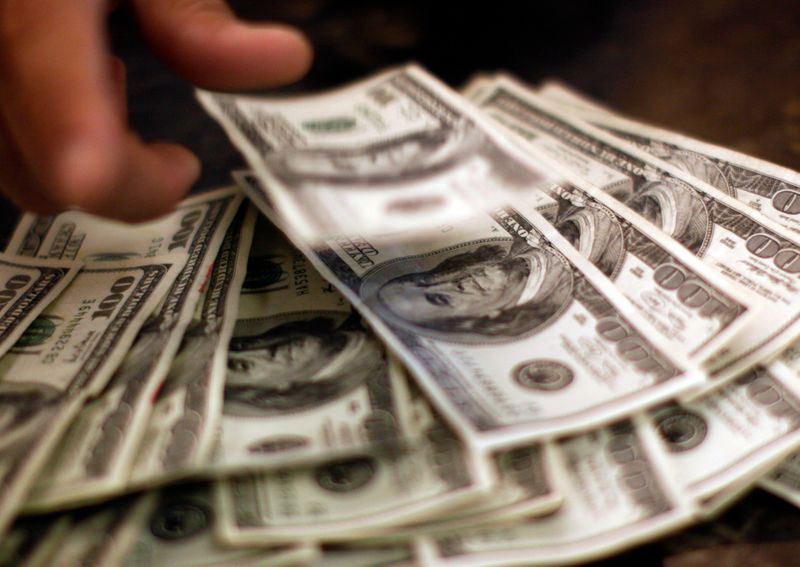
At 05:20 ET (09:20 GMT), the Dollar Index, which tracks the greenback against a basket of six other currencies, traded 0.1% higher to 101.370, having earlier fallen to its lowest level since Jan. 2.
It had fallen 0.5% or more in each of the previous three sessions.
The dollar has been under pressure, falling over 2% over the course of the last month, with U.S. bond yields falling to a more-than-one-year trough after surprisingly soft monthly jobs figures sparked recession fear.
This brings the revised payrolls data, due later Wednesday, firmly in focus, with the potential of a hefty downwards revision weighing heavily on the dollar.
The minutes of the late July Fed meeting are also due for release later in the session, and traders will be looking for the prospects of the Fed cutting interest rates at its mid-September policy meeting.
The Fed has maintained its benchmark overnight interest rate in the current 5.25%-5.50% range since last July.
Nomura forecasts continued weakness in the U.S. dollar, with this outlook driven by several macroeconomic factors, positioning adjustments, and portfolio reallocations, which are expected to put downward pressure on the dollar in the coming months.
In Europe, EUR/USD traded 0.1% lower to 1.1120, just off a high of 1.1133, the highest level since Dec. 28.
The single currency is up over 2% this month, and is on course for its strongest monthly performance since November.
Nomura anticipates a narrowing of the growth differential between the U.S. and Europe, which has been a significant factor in dollar strength.
“This is likely to support EUR/USD, while our discussions with market participants concluded that there are positioning risks towards a higher EUR/USD if spot breaches recent highs of 1.1139 in December 2023 (and 1.1276 in July 2023; last at 1.1077),” the Nomura analysts said.
GBP/USD traded 0.1% lower to 1.3020, just below the previous session’s high of 1.3054, a level last seen in July of last year.
Data released earlier Wednesday showed that U.K. government borrowing surged by more than expected in July, with public sector net borrowing standing at £3.1 billion last month, £1.8 billion more than a year ago and the highest July borrowing since 2021.
Traders are split on the chances of another rate reduction by the BoE in mid-September, after it kicked off a rate-cutting campaign earlier this month in a close-call decision.
In Asia, USD/JPY rose 0.5% to 146.01, but remained well below the highs of 160 hit earlier this year.
USD/JPY had fallen as far as 141 earlier in August as the yen carry trade was largely unwound by hawkish signals from the Bank of Japan. Rising Japanese rates are expected to underpin the yen and further undermine the yen carry trade in the coming months.
USD/CNY traded largely flat at 7.1326, after a slightly stronger midpoint fix by the People’s Bank. The central bank had also kept its benchmark loan prime rate unchanged on Tuesday.
To read the full article, Click Here
